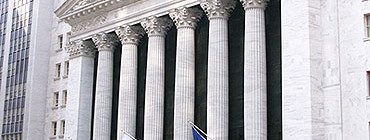What Type Of CD Should You Buy?

This is for my American friends. The ones who got scared into keeping money in cash and out of the market 🙂
(In Canada, we have things like GICs and Term Deposits, none of this CD stuff.)
It used to be that when you bought a certificate of deposit (CD), you didn’t have a lot of choices. It was a simple decision. Nowadays, even with a basic CD you have to do some homework. It’s still a pretty conservative investing technique, if it can be called that…
Regular CD
To start with, there is the regular CD that has been around for many years. Even so, there is a lot to learn about plain vanilla traditional CD’s. First, you need to shop around for rates. Then, figure out if flexibility is important to you. With a shorter term, for example, 6 months, you can access your funds sooner, but a 3-year CD is likely to give you a higher yield. Though not always! I’ve seen shorter term products offered at better rates. My guess is that happens when a particular bank is strapped for cash, or they’re just trying to drum up some new business.
You need to also consider whether the interest rates are going up or down in the future. If they go down, then a long-term CD is more advantageous, while if they go up you want to be able to get your money back quickly to take advantage of the rise. There are techniques you can use to balance off short-term versus long-term investment, such as laddering and barbells. (I’ve done Ladders and Bullets with term deposits. It’s ok. Makes you feel busy and smart, doesn’t necessarily produce great results.)
Brokered CD
If you are looking to have access to your money at any time and are still looking for the security a CD offers, then you may want to consider a brokered CD. This is a CD that you can sell at any time on the open market provided there are buyers – just like you would sell a stock or bond. The way these work is that the broker buys a large CD from a bank, and then breaks it up into a number of smaller brokered CDs which it sells to its clients. The interest rate is typically lower than you would get on a regular CD, but this is offset by the flexibility it provides.
Market-Linked CD
Finally, you may want to consider buying a market-linked CD, which gives you a fixed return like a traditional CD, but also gives additional returns linked to stock market growth. You can’t lose money if the stock market goes down, so in some ways this is a win-only proposition. However, before you invest in this type of CD, you really need to get professional advice from an unbiased expert, since there can be significant issues around tax treatment, and the FDIC protection may only apply to the capital you invest initially, not to any gains you may make.
